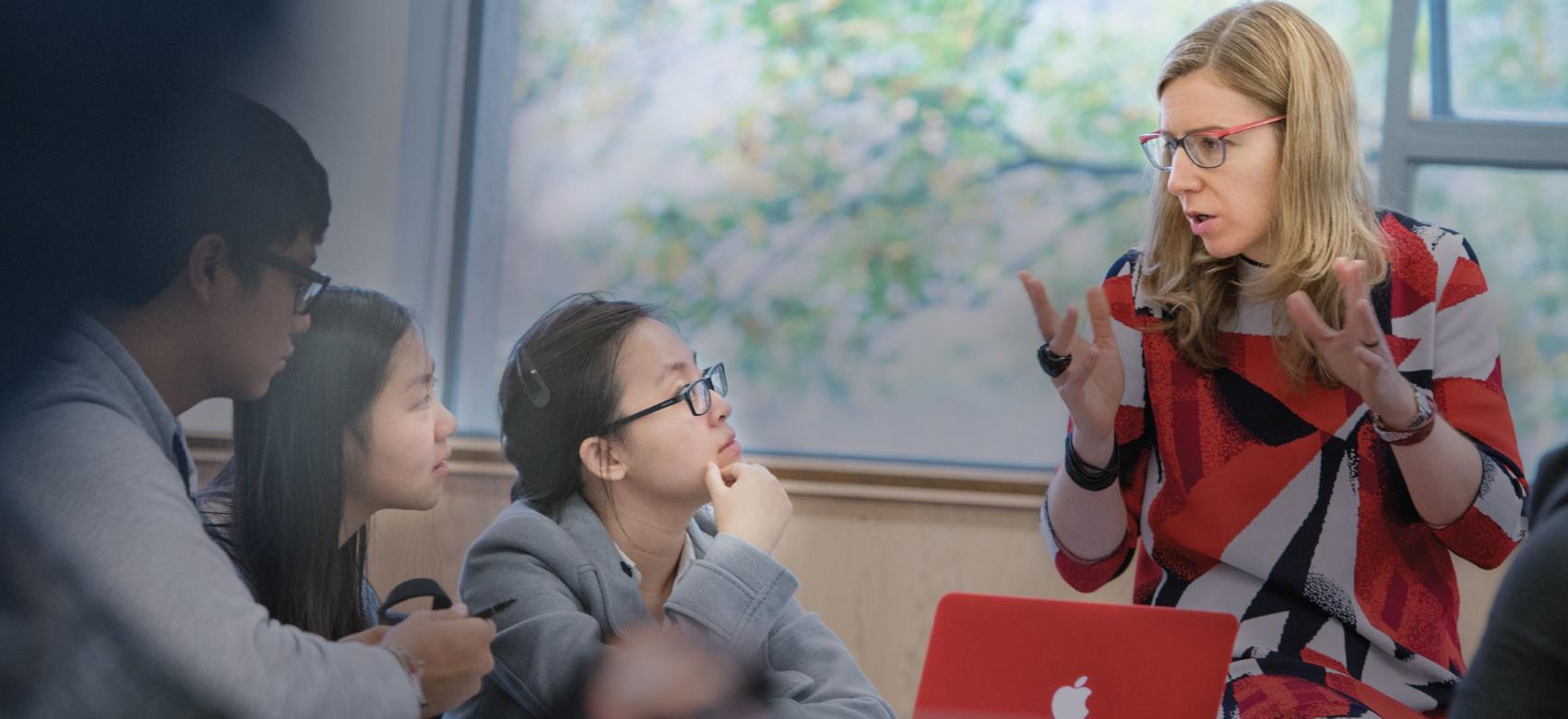Beyond gaming: augmented reality app teaches empathy
By Carolyn Ali

App allows people to literally walk through the experiences of Syrian refugees to gain a better understanding of their lives
When people think of augmented reality, they often think of video games like Pokémon Go or Harry Potter: Wizards Unite. But a geography instructor at the University of British Columbia has harnessed the same interactive technology to teach students about something of global importance: the Syrian Civil War.
Dr. Siobhán McPhee and a team of researchers created an augmented reality (AR) experience called Journey With Me. The platform uses motion, sound and video to help McPhee’s students literally walk through the experiences of five real-life Syrian refugees who were forced to make some harrowing choices on their journey to Canada. Not only do students hear the refugees’ stories, they participate in their journeys that lead to them running away from bombs or listen to the thump-thump of the storyteller’s heartbeat as they anxiously try to cross a border.
“I want students to be immersed in an experience, which will create connections and empathy.”
Dr. Siobhán McPhee, UBC FAculty of ARts
The goal is for students to understand not just the history of the war but the emotional consequences for those involved. “I want students to be immersed in an experience, which will create connections and empathy,” McPhee explained.
McPhee’s AR experience is innovative because it puts a different spin on the traditional concept of inviting guest speakers into the classroom to talk to students. McPhee created it to send her students out of the classroom and encourage them to become more active learners. It’s also sustainable. “This is something that will live as long as I teach the course.” The speakers don’t need to come into her classroom again and again to share their often-emotionally challenging stories with new classes.
McPhee also uses augmented reality in several other courses. She has used AR as part of a political economy history walking tour of downtown Vancouver, and is developing an experience involving the history of Vancouver’s Chinatown. She encourages everyone to be open to new approaches to teaching and learning. “We really need to engage our students,” she said. “We don’t always need to go with the way it’s always been done.”
Originally published Spring 2019
Carolyn Ali is a writer for UBC’s Brand and Marketing.
Feel free to republish the text of this article, but please follow our guidelines for attribution and seek any necessary permissions before doing so. Please note that images are not included in this blanket licence.


